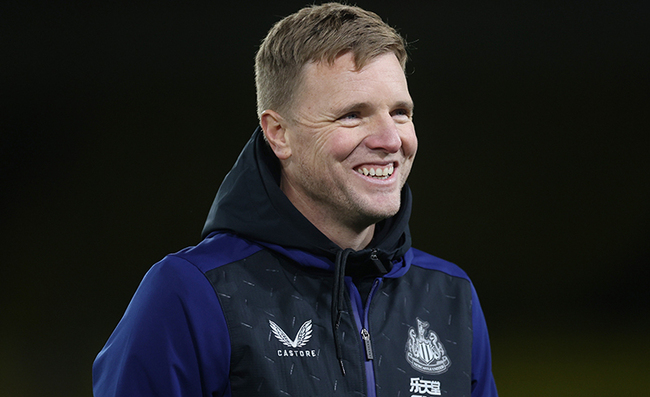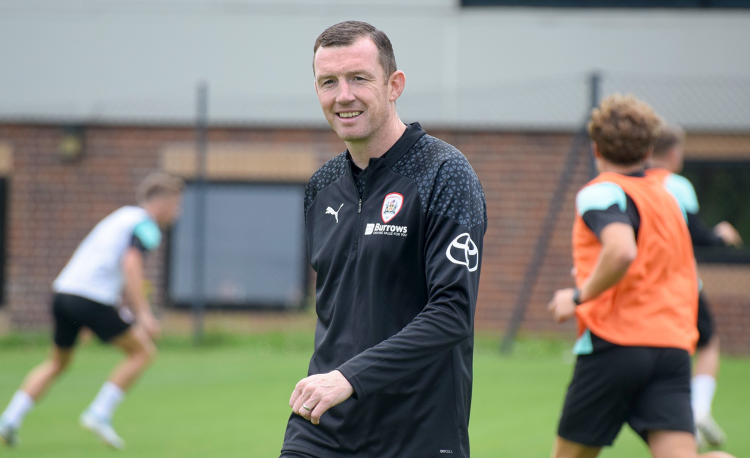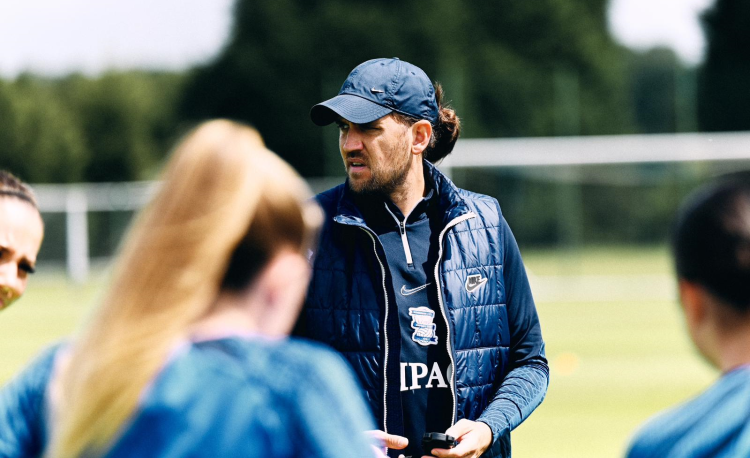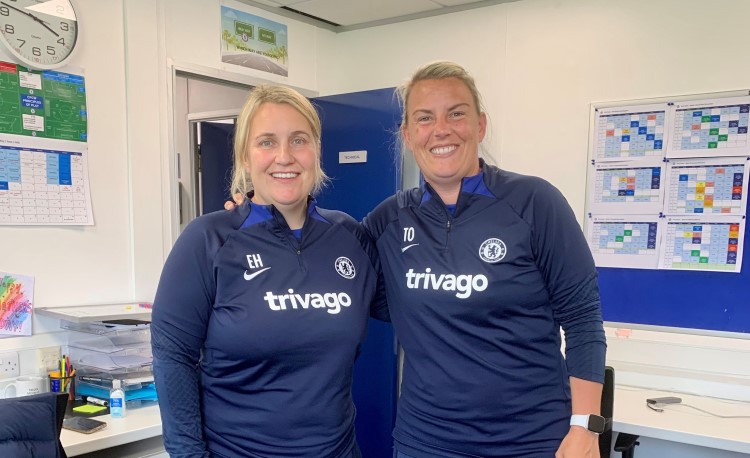All the way up
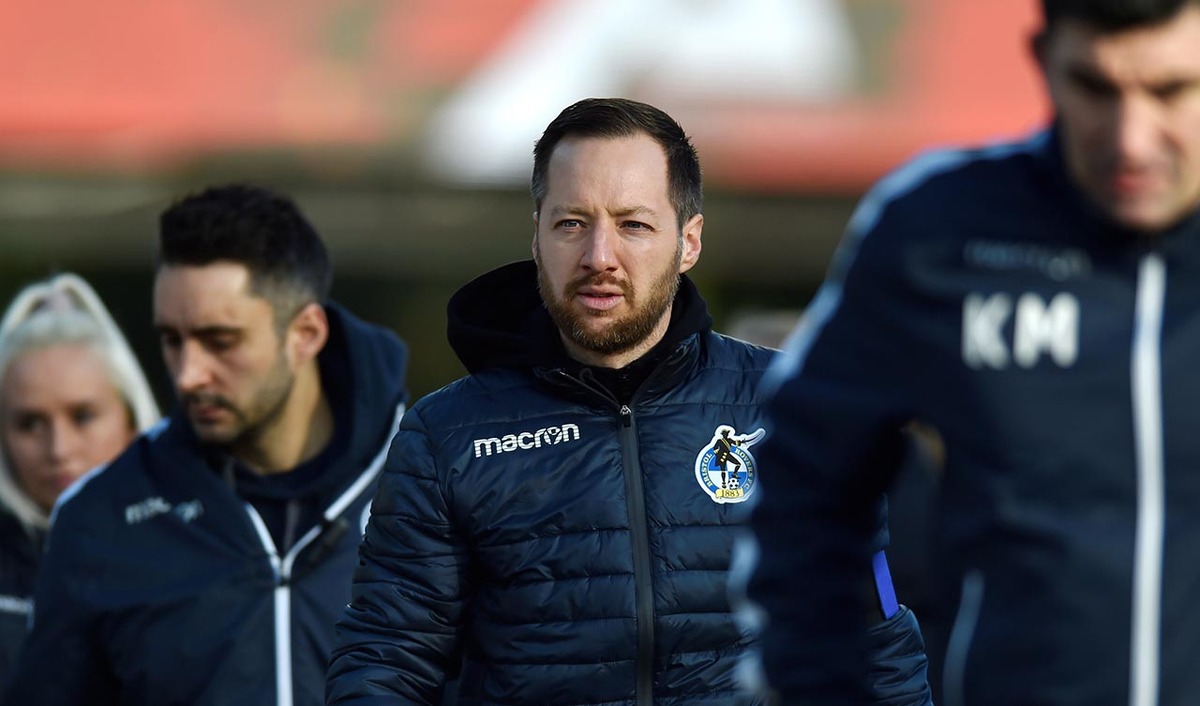
Having risen through the ranks as a coach for his boyhood team, Crystal Palace, former Bristol Rovers manager Ben Garner has earned himself an enviable reputation and worked under some fantastic managers.
When Ben Garner was let go from League One side Bristol Rovers 11 games into the 2020-21 season it didn’t come as a complete shock to him. It was, nevertheless, a disappointing end to what was Garner’s first foray into full-time management.
“My remit going into the role was very clear, to change the style of play, lower the average age of the squad and the wage structure, improve the infrastructure and develop the training ground, and I’m proud of the enormous progress we made towards those targets during my 11 months in the role,” he says. “It was disappointing not to be able to see those plans through, but I know that the experience I gained at the club was invaluable. I learned so much.”
Despite his 16 years of experience as a coach, nine as head coach or assistant head coach, his coaching licences and the LMA Diploma, Garner says there were things you just couldn’t prepare for.
“There were challenges I faced that I’d never have expected in terms of infrastructure and logistics. I’d worked up through a wide range of roles, but this was the most demanding in terms of how I was able to work and the environment I was able to create. However, it was all valuable experience that will stand me in good stead for the future.”
Garner allowed himself just a week of downtime to let the disappointment sink in and pass over, before digging deep to see what he might learn from this important period in his career.
“After doing an enormous amount of reflection,” he says, “I identified the factors that were outside of my control and influence – recognising there was no point in getting downhearted about them – then took real ownership of those elements that were. I reviewed every training session and every interview that I had given while at Rovers, and looked at what I might have done differently or do better next time, as well as what I did well in the role.”
Rather than viewing his departure from Rovers as the closing of one door, Garner took comfort and positivity from his strengths and achievements and saw it as the chance to open another. “I looked back over my years of coaching experience, the roles I’ve held and the great people I’ve worked with, and asked myself what the next phase in my career might look like. What are my aims and ambitions?”
Most of all, though, he was determined to take as many lessons as possible from his first experience of management and to use his time out of the game to develop himself as much as possible.
“As well as studying games and doing as much personal development as possible, I’ve spoken to a number of players, managers and technical directors within football. However, I’ve perhaps gained even more by speaking to leaders in other sports and industries,” he says. “Hearing their different perspectives on coaching and development has been invaluable.”
Garner’s response in the face of setbacks shows a resilience and maturity that some managers take the best part of a career to master.
He credits a difficult 12 months away from the training ground and a partial season spent at Indian Super League side ATK with helping him to put events into perspective.
“Working over in India certainly made me more humble and changed my views on life,” says Garner.
“It was wonderful, both for me as a person and in terms of developing my career, to experience a completely different culture and style of football, to coach in a different language, and take into account religious rituals, values and beliefs when working with the players. It really challenged me and stood me in good stead for the future.”
Garner also relished the opportunity to work with, and learn from, Steve Coppell, who had achieved such success as manager of Garner’s hometown club, Crystal Palace. It was also there that he got his first coaching job, starting with the U11s and working his way up over the course of a decade through the age groups to head coach of the first-team.
After several years as assistant head coach at West Brom under Tony Pulis, he joined Coppell in India. Garner says that, as career pathways go, his was perfect. “I wouldn’t change a thing. To have to think early on about how to coach those young players, the level of information that you give them, the kind of terminology you use, what is important to them – that was an important first step on the learning journey for me,” he says. “As I progressed through to the first-team it was wonderful to see some players develop and move up with me, to see how they matured and developed at different rates, and understand some of the problems they faced.
“Being aware of the challenges that young players can be dealing with off the pitch, the tough upbringings some of them might have had, improves your abilities as a coach, manager, psychologist and figure of support,” he adds. “Throughout that gradual career pathway, I always felt I was striving to get the next level and being stretched. It was a wonderful journey.”
Garner is thankful to have worked with some great managers, including Coppell, Pulis, Ian Holloway, Neil Warnock, Alan Pardew and Terry Venables.
“They were all big personalities with different strengths as managers and all had a strong influence on me,” he says. “Throughout your career journey you have to be a sponge, take in as much information as possible, and try to learn from both the good things that you see and the things you might do differently. I know I have my own distinct personality and style, so it’s important to reframe it all to fit my own approach and philosophy around the game.
“From the outset I had a clear set of beliefs and values, not just around coaching but around discipline and behaviours and how a team should be set up.
I was certain that we could produce technically very good and tactically very intelligent players in this country and that was my motivation.”
While Garner has learned and improved, he hasn’t strayed too far from those core values over the years, nor changed how he treats people.
“Who you are as a person and how you see the world dictates how you interact with other people, but on top of that you learn about the game, you learn from other managers, you watch as many games and take as many training sessions as possible. Over time I’m gaining experience, learning, adapting and evolving, but I know who I am as a person and what I believe in. Within that, I just need to be the best I can be.”
When Ben Garner was let go from League One side Bristol Rovers 11 games into the 2020-21 season it didn’t come as a complete shock to him. It was, nevertheless, a disappointing end to what was Garner’s first foray into full-time management.
“My remit going into the role was very clear, to change the style of play, lower the average age of the squad and the wage structure, improve the infrastructure and develop the training ground, and I’m proud of the enormous progress we made towards those targets during my 11 months in the role,” he says. “It was disappointing not to be able to see those plans through, but I know that the experience I gained at the club was invaluable. I learned so much.”
“After doing an enormous amount of reflection, I identified the factors that were outside of my control and influence”
Despite his 16 years of experience as a coach, nine as head coach or assistant head coach, his coaching licences and the LMA Diploma, Garner says there were things you just couldn’t prepare for.
“There were challenges I faced that I’d never have expected in terms of infrastructure and logistics. I’d worked up through a wide range of roles, but this was the most demanding in terms of how I was able to work and the environment I was able to create. However, it was all valuable experience that will stand me in good stead for the future.”
BOUNCING BACK
Garner allowed himself just a week of downtime to let the disappointment sink in and pass over, before digging deep to see what he might learn from this important period in his career.
“After doing an enormous amount of reflection,” he says, “I identified the factors that were outside of my control and influence – recognising there was no point in getting downhearted about them – then took real ownership of those elements that were. I reviewed every training session and every interview that I had given while at Rovers, and looked at what I might have done differently or do better next time, as well as what I did well in the role.”
Rather than viewing his departure from Rovers as the closing of one door, Garner took comfort and positivity from his strengths and achievements and saw it as the chance to open another. “I looked back over my years of coaching experience, the roles I’ve held and the great people I’ve worked with, and asked myself what the next phase in my career might look like. What are my aims and ambitions?”
Most of all, though, he was determined to take as many lessons as possible from his first experience of management and to use his time out of the game to develop himself as much as possible.
“As well as studying games and doing as much personal development as possible, I’ve spoken to a number of players, managers and technical directors within football. However, I’ve perhaps gained even more by speaking to leaders in other sports and industries,” he says. “Hearing their different perspectives on coaching and development has been invaluable.”
A LEARNING JOURNEY
Garner’s response in the face of setbacks shows a resilience and maturity that some managers take the best part of a career to master.
He credits a difficult 12 months away from the training ground and a partial season spent at Indian Super League side ATK with helping him to put events into perspective.
“Working over in India certainly made me more humble and changed my views on life,” says Garner.
“It was wonderful, both for me as a person and in terms of developing my career, to experience a completely different culture and style of football, to coach in a different language, and take into account religious rituals, values and beliefs when working with the players. It really challenged me and stood me in good stead for the future.”
Garner also relished the opportunity to work with, and learn from, Steve Coppell, who had achieved such success as manager of Garner’s hometown club, Crystal Palace. It was also there that he got his first coaching job, starting with the U11s and working his way up over the course of a decade through the age groups to head coach of the first-team.
“Throughout your career journey you have to be a sponge and take in as much information as possible”
After several years as assistant head coach at West Brom under Tony Pulis, he joined Coppell in India. Garner says that, as career pathways go, his was perfect. “I wouldn’t change a thing. To have to think early on about how to coach those young players, the level of information that you give them, the kind of terminology you use, what is important to them – that was an important first step on the learning journey for me,” he says. “As I progressed through to the first-team it was wonderful to see some players develop and move up with me, to see how they matured and developed at different rates, and understand some of the problems they faced.
“Being aware of the challenges that young players can be dealing with off the pitch, the tough upbringings some of them might have had, improves your abilities as a coach, manager, psychologist and figure of support,” he adds. “Throughout that gradual career pathway, I always felt I was striving to get the next level and being stretched. It was a wonderful journey.”
KNOW YOURSELF
Garner is thankful to have worked with some great managers, including Coppell, Pulis, Ian Holloway, Neil Warnock, Alan Pardew and Terry Venables.
“They were all big personalities with different strengths as managers and all had a strong influence on me,” he says. “Throughout your career journey you have to be a sponge, take in as much information as possible, and try to learn from both the good things that you see and the things you might do differently. I know I have my own distinct personality and style, so it’s important to reframe it all to fit my own approach and philosophy around the game.
“From the outset I had a clear set of beliefs and values, not just around coaching but around discipline and behaviours and how a team should be set up.
I was certain that we could produce technically very good and tactically very intelligent players in this country and that was my motivation.”
While Garner has learned and improved, he hasn’t strayed too far from those core values over the years, nor changed how he treats people.
“Who you are as a person and how you see the world dictates how you interact with other people, but on top of that you learn about the game, you learn from other managers, you watch as many games and take as many training sessions as possible. Over time I’m gaining experience, learning, adapting and evolving, but I know who I am as a person and what I believe in. Within that, I just need to be the best I can be.”
Editor's Picks
Attacking transitions
Jesse Marsch
Deep runs in the final third
Fabian Hürzeler
Using the goalkeeper in build-up play
Ralph Hasenhüttl
Intensive boxes drill with goals
Andoni Iraola
Penetrating the final third
Ange Postecoglou
Creating and finishing
Pep Guardiola
My philosophy
Sir Alex Ferguson
Pressing initiation
Mauricio Pochettino
Compact team movement
Roberto Martinez
Coaches' Testimonials

Alan Pardew

Arsène Wenger

Brendan Rodgers

Carlos Carvalhal

José Mourinho

Jürgen Klopp

Pep Guardiola

Roy Hodgson

Sir Alex Ferguson

Steven Gerrard
Related
Neill Collins
Unlocking the wing backs
Darren Carter
Building the attack and third player runs
Emma Hayes
Play around to play through
Coaches' Testimonials

Gerald Kearney, Downtown Las Vegas Soccer Club

Paul Butler, Florida, USA

Rick Shields, Springboro, USA

Tony Green, Pierrefonds Titans, Quebec, Canada
Join the world's leading coaches and managers and discover for yourself one of the best kept secrets in coaching. No other training tool on the planet is written or read by the calibre of names you’ll find in Elite Soccer.
In a recent survey 92% of subscribers said Elite Soccer makes them more confident, 89% said it makes them a more effective coach and 91% said it makes them more inspired.
Get Monthly Inspiration
All the latest techniques and approaches
Since 2010 Elite Soccer has given subscribers exclusive insight into the training ground practices of the world’s best coaches. Published in partnership with the League Managers Association we have unparalleled access to the leading lights in the English leagues, as well as a host of international managers.
Elite Soccer exclusively features sessions written by the coaches themselves. There are no observed sessions and no sessions “in the style of”, just first-hand advice delivered direct to you from the coach.





